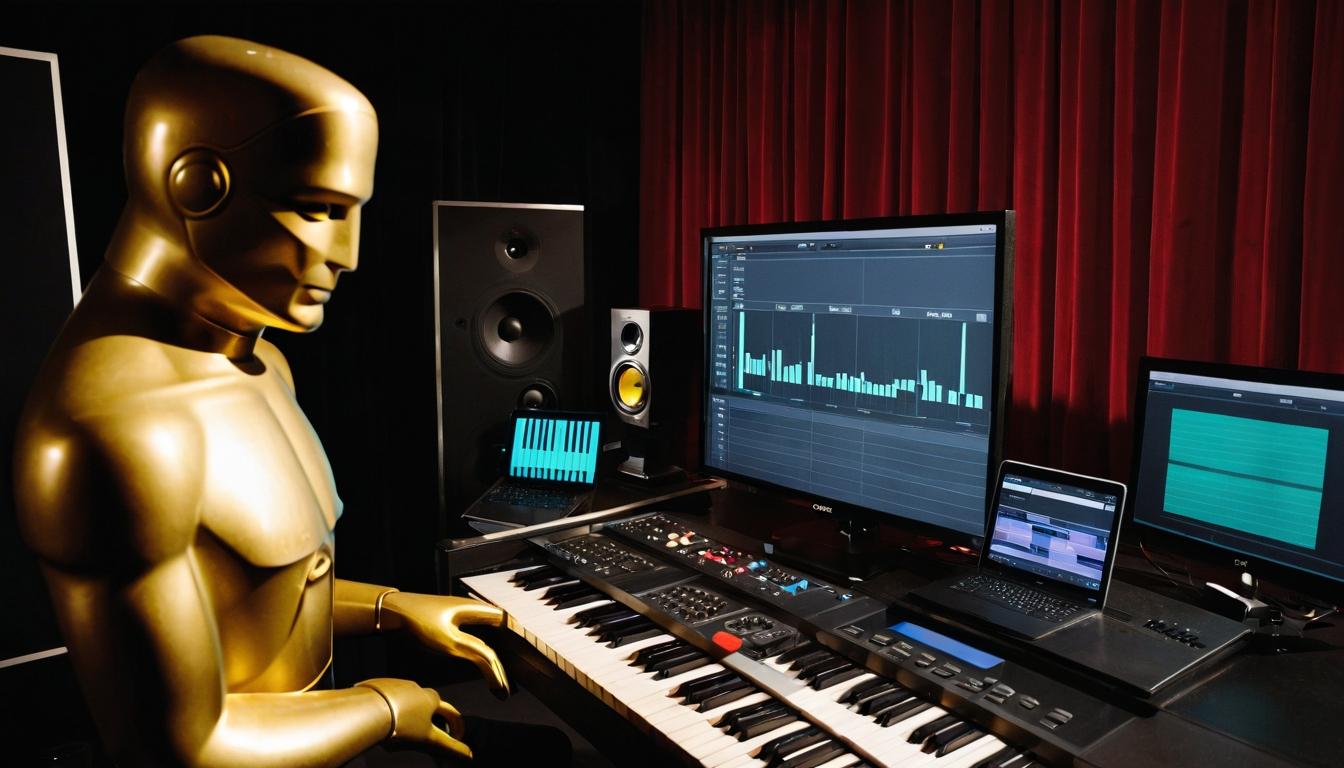In the dimly lit recording studios of London and Los Angeles, a quiet revolution is taking place. While audiences flock to theaters for the latest Marvel spectacle or indie darling, few recognize the seismic shifts occurring in the world of film scoring. The traditional orchestral swells that once defined Hollywood are giving way to a new sonic landscape—one where synthesizers, ethnic instruments, and experimental techniques are creating textures previously unimaginable.
What's driving this transformation isn't just technological advancement, but a fundamental rethinking of music's role in storytelling. Composers like Hildur Guðnadóttir, whose cello-based score for 'Joker' earned her an Oscar, are proving that minimalism can carry more emotional weight than a hundred-piece orchestra. Her approach—recording in abandoned power stations and using the architecture itself as an instrument—represents a growing trend of site-specific scoring that challenges conventional studio practices.
The democratization of scoring technology has created unexpected opportunities. Bedroom producers with little more than a laptop and MIDI controller are now contributing to major studio releases, blurring the lines between film composition and electronic music production. This accessibility comes with trade-offs—while it's easier than ever to create professional-sounding mockups, the unique character of live musicianship risks being lost in the process.
Streaming platforms have inadvertently become the new patrons of film music. Services like Spotify and Apple Music have made soundtrack albums commercially viable in ways they haven't been since the golden age of vinyl. This economic shift has empowered composers to take greater creative risks, knowing their work will reach audiences directly rather than being confined to the film's runtime. The result? More distinctive musical identities that stand apart from the homogenized sound of franchise filmmaking.
Perhaps the most significant development lies in how composers are collaborating with directors earlier in the filmmaking process. No longer brought in during post-production as sonic wallpaper providers, today's composers often join projects during pre-production, participating in story discussions and sometimes even influencing editing choices. This integrated approach has led to scores that feel organically woven into the film's DNA rather than layered on top.
The globalization of film scoring continues to yield fascinating cross-pollination. Composers from Asia, Africa, and South America are bringing non-Western musical traditions to Hollywood productions, creating hybrid sounds that reflect our interconnected world. At the same time, Western composers are increasingly studying these traditions, recognizing that the future of film music lies in cultural synthesis rather than isolation.
Behind the scenes, the business of film scoring is undergoing its own transformation. The rise of music supervisors as key creative partners has changed how composers are selected and how their music is integrated. Meanwhile, complex copyright issues surrounding sampling and digital instrumentation create legal minefields that composers must navigate while pushing artistic boundaries.
What does this mean for the future of cinema? As virtual production techniques evolve and AI-assisted composition tools emerge, the role of the composer will continue to transform. Yet the fundamental need for music that connects with human emotion remains unchanged. The most exciting developments may come from composers who embrace technology while remembering that the most powerful instrument remains the human heart.
The next time you find yourself humming a film theme days after leaving the theater, consider the quiet revolution that made it possible. In studios around the world, composers are not just accompanying images—they're helping redefine what cinema can be.
The unsung heroes: how film composers are shaping modern cinema beyond the blockbuster

